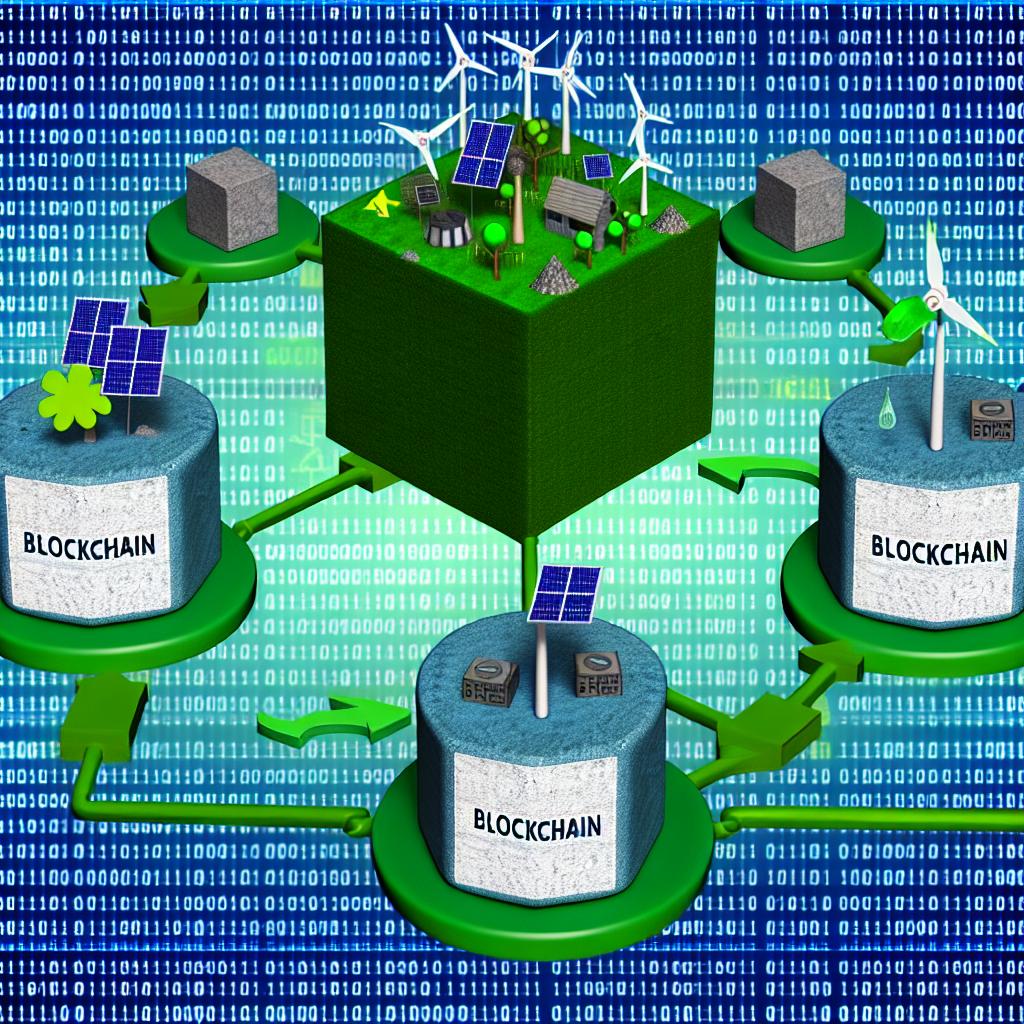
Blockchain technology, first introduced as the backbone of Bitcoin, has rapidly expanded its reach into various sectors. Among these, renewable energy stands out as a prominent field where blockchain’s capabilities can be profoundly impactful. This technology, which operates as a decentralized ledger, offers unique benefits such as transparency, enhanced security, and decentralization. These features make it particularly appealing for the renewable energy domain, where efficient management and optimization are crucial. This article explores the relationship between blockchain technology and renewable energy, detailing its applications, advantages, and challenges, while providing insights into the future prospects of this integration.
Understanding Blockchain Technology
Blockchain can be described as a digital ledger system where transactions are recorded on a network composed of multiple computers. A striking characteristic of blockchain systems is their ability to secure transactions via cryptographic methods, ensuring data integrity and security. Below are some core attributes of blockchain technology:
Decentralization: A defining feature of blockchain is its decentralized nature. Traditional databases are typically controlled by a central authority, while blockchains distribute identical copies of their databases across numerous nodes. This structure not only fosters trust among participants but also minimizes single points of failure.
Transparency: Blockchain ensures transaction transparency by providing network participants access to the blockchain. While these transactions are visible to all, privacy is maintained through the implementation of public and private keys.
Immutability: Transactions recorded on a blockchain cannot be altered or removed without obtaining consensus from network participants. This immutability guarantees data integrity and reliability.
Role of Blockchain in Renewable Energy
The adoption of blockchain technology in renewable energy systems opens up avenues for innovation and increased efficiency. By integrating blockchain, stakeholders in the renewable energy sector can achieve enhanced energy trading and management processes.
Decentralized Energy Trading
One of the most promising uses of blockchain in renewable energy is decentralized energy trading. Blockchain facilitates peer-to-peer (P2P) energy trading platforms, enabling producers and consumers to trade renewable energy directly with each other. This approach offers several benefits:
Reduced Transaction Costs: Blockchain-based trading platforms eliminate the need for intermediaries, thus reducing transaction costs. This cost reduction encourages smaller producers to participate actively in energy markets, ensuring a more diverse and competitive market.
Improved Market Access: Consumers can buy energy directly from local producers, fostering the growth of localized energy markets. This reduces dependency on large utility companies and encourages the utilization of locally sourced energy.
Enhancing Grid Management
Blockchain technology is instrumental in refining grid management systems by providing real-time data and improving the communication link between energy generators and consumers. Smart contracts play a pivotal role in this scenario by automating energy distribution and consumption processes:
Smart Contracts: Smart contracts are self-executing contracts with conditions embedded within their code. They automatically handle agreements, ensuring compliance and minimizing administrative tasks. The use of smart contracts in grid management results in a more efficient and responsive grid operation.
Facilitating Green Energy Certification
As an increasing number of companies and individuals emphasize sustainability, the demand for verifiable renewable energy certificates (RECs) has climbed. Blockchain technology can authenticate these certificates by offering a transparent and unchangeable record of energy generation and consumption:
Authenticity and Traceability: Through blockchain, the verification of REC origins and authenticity is enhanced, ensuring credibility. This trust boosts confidence in green energy markets, encouraging the adoption of renewable energy solutions.
Challenges and Future Prospects
Despite its advantages, blockchain faces challenges that need to be addressed for its successful integration into renewable energy systems. Issues like scalability, acceptance from regulatory bodies, and the high energy consumption of blockchain operations remain areas of concern. Research and technological advancements are actively targeting these hurdles to create more efficient and environmentally friendly blockchain solutions.
In summary, blockchain technology presents a compelling opportunity to transform renewable energy systems by enabling decentralized energy trading, optimizing grid management, and verifying renewable energy certificates. As blockchain technology evolves, it is expected to become a crucial component of the shift towards sustainable global energy systems.